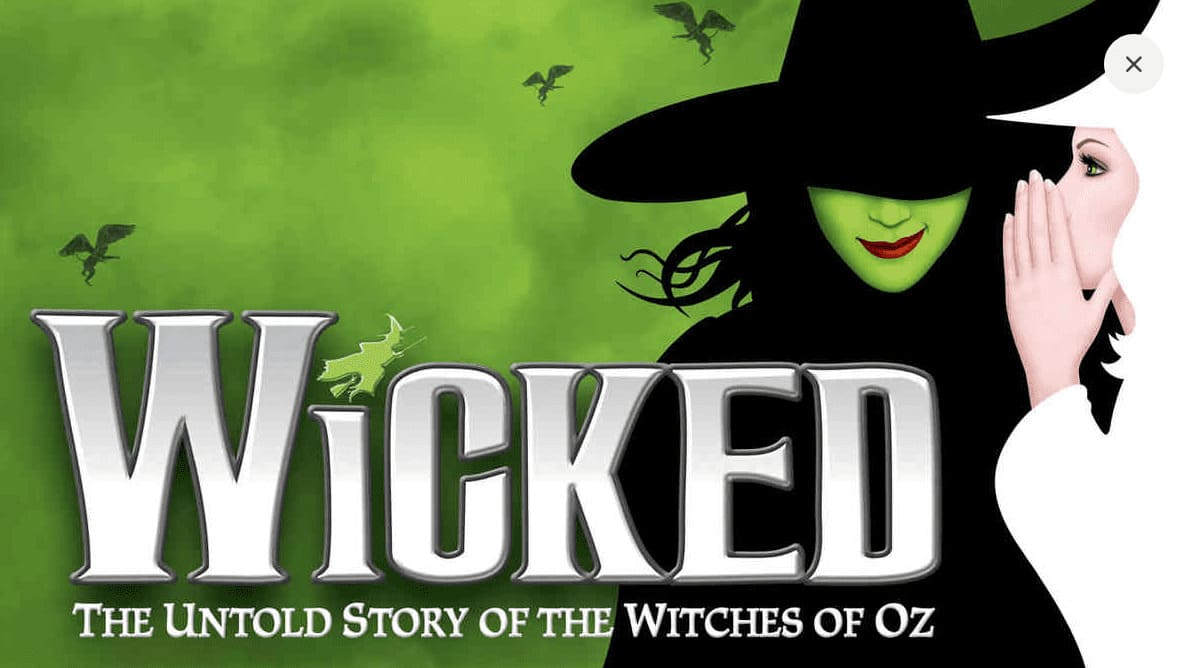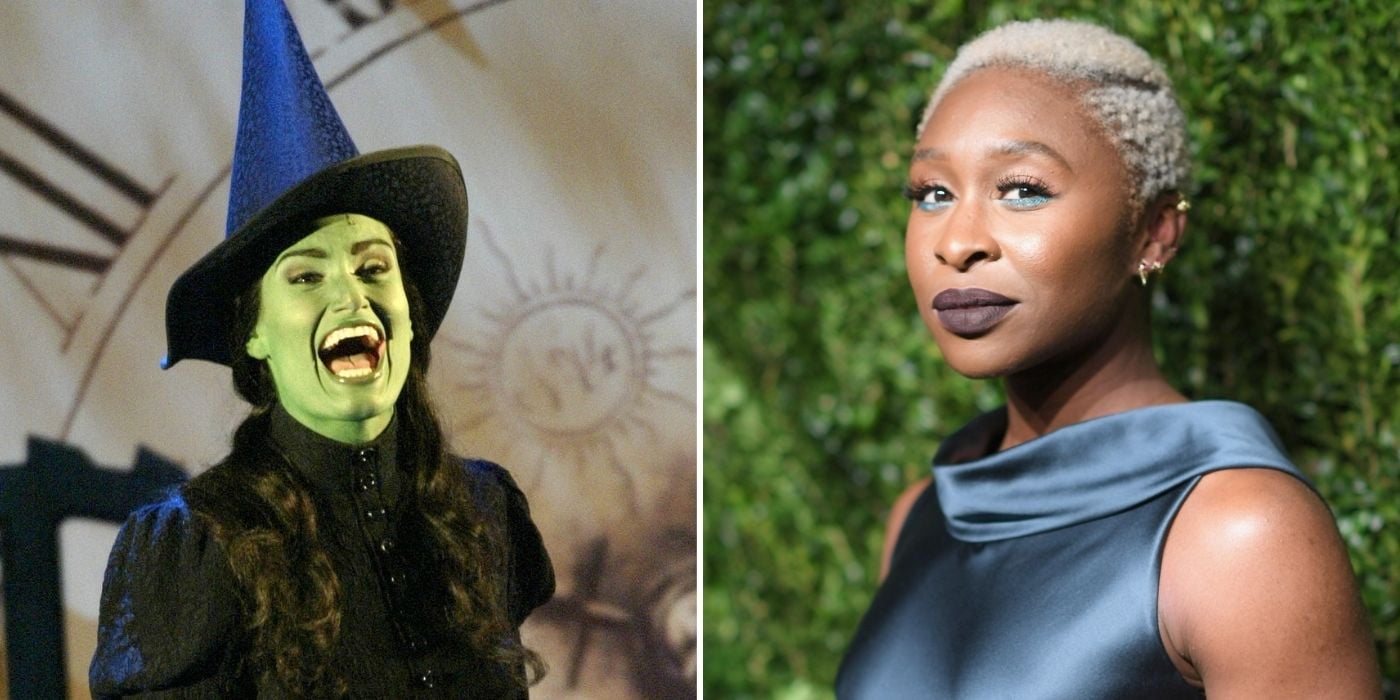Wicked, the hit Broadway musical, was inspired by Gregory Maguire’s book, but they are very different stories. Don’t assume you’ll like both!
Author Gregory Maguire is known for taking popular children’s stories and turning them on their heads. While considering what it means to be evil, Maguire got the idea to write about The Wicked Witch (Elphaba) from The Wizard of Oz. He wanted to write her as if she were a character in a Dickenson novel, and the result is masterful. The book, Wicked: The Life and Times of the Wicked Witch of the West is a politically charged, dark, social commentary on a struggling country told from many different viewpoints. It covers topics like government coups, sex, social reform, assassinations, and morally ambiguous characters. In the book, no character is all good or all bad.
On the other hand, the musical is told from the viewpoint of Elphaba and Galinda (the Good Witch) and mainly covers their time at college and directly after. Both Elphaba and Galinda have minor flaws, but in the musical, they are good through and through. In fact, most of the characters are. The musical is great, but to be clear, it’s nothing like its source material. (The upcoming movie starring Ariana Grande, Cynthia Erivo, and Michelle Yeoh will follow the musical and not the book.) Check out just a few of the key differences below (WARNING: SPOILERS!!!):
Character Differences
The structure of the two titular works is very different. Wicked, the musical, is a more streamlined and condensed version of the story, while the book has more detail and explores certain subplots and characters on a deeper level. This means that some characters, such as Boq (the Tin Man) and the Wizard (Elphaba’s biological father), are more fully explored in the book than in the musical.
There are far more characters in the book overall because the book covers so much more of Elphaba’s life. The part we see in the musical is just a tiny portion of Elphaba’s life. In each section of the book, new characters are introduced, and only a few overlap from section to section.
Elphaba
Elphaba was not a witch. In Wicked, the musical, Elphaba is a witch, but in the book, she never masters magic or has any raw talent. The musical emphasizes the magical elements of her story more than the book does, with many musical numbers focusing on the use of her magic and the power of Oz.
Other Story Differences
In the musical, Fiyero is the popular love interest who chooses Elphaba over Galinda. In the book, he has a very different story. First, he is a tribal prince covered in blue diamonds. Second, he’s an adulterer. When he meets up with Elphaba again after college, he is married with kids, and they begin an affair. After Fiyero is killed in a raid, Elphaba is left with their son, Liir, whom she doesn’t remember giving birth to and ultimately despises. In the musical, Fiyero turns into the Scarecrow; in the book, it is assumed he is dead.
In the book and the musical, Doctor Dillamond, a college professor who also happens to be a goat, is fighting to gain back equal rights for animals, which once existed but was reversed by the Wizard when he came into power. However, in the book, he is assassinated by Madame Morrible, whom Elphaba later kills in an act of revenge. In the musical, he simply reverts to his full goat form and is taken prisoner. Madame Morrible ends up in prison in the musical but is never killed by Elphaba as in the book.
Dorothy did not mean to kill the witch in the book. In Maguire’s Wicked, she arrives to apologize for killing Elphaba’s sister with her house. This annoys Elphaba, who has become tired and bitter and accidentally sets herself on fire. When Dorothy throws water on her to save her, she unintentionally kills Elphaba. In the musical, Dorothy is the bad guy, intentionally killing the witch. As it turns out, Elphaba has only faked her death to be with her love, Fiyero, now the Scarecrow.
In Conclusion
Overall, while Wicked, the musical, and the book tell the same basic story, they differ in several ways. However, whether you prefer the more energetic musical version or the more detailed and thought-provoking book, both are well worth checking out.







![Watch Again: What Dreams May Come [Review] Watch Again: What Dreams May Come [Review]](https://a.ltrbxd.com/resized/sm/upload/jx/rg/od/ey/what-dreams-may-come-1200-1200-675-675-crop-000000.jpg?k=7d1476c8c0)


[…] digs into the years before Shiz University. As a fan of both the book series and the musical (just don’t confuse them), I was instantly in! Here’s what I thought of Maguire’s newest addition to the Wicked […]